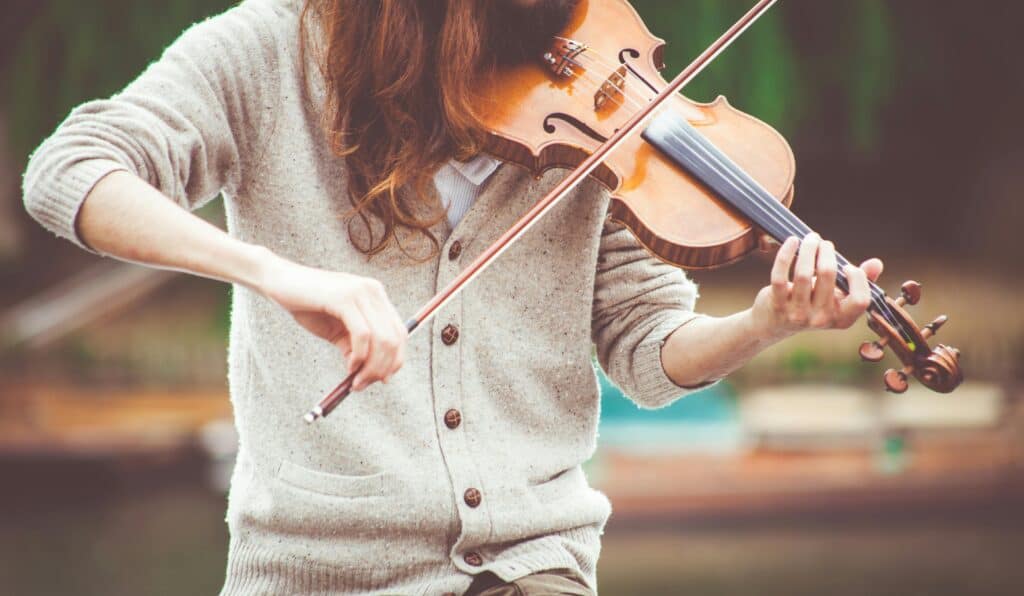The violin has stood the test of time, not merely as an instrument of elegant soundscapes but as a symbol of the enduring connection between music and human emotion. The rich, complex tones that emanate from its strings have been central to the development of Western classical music. Yet, the instrument’s versatility allows it to be featured in modern genres like jazz, folk, and even rock. Potential students are increasingly drawn to its expressiveness and the dynamic range it can provide. Recognizable figures such as Vivaldi, Paganini, and contemporary artists have popularized the violin to new generations, ensuring the demand for learning this instrument remains strong in the digital age.
The Digital Revolution in Music Learning
The advent of the internet and subsequent digital technologies has radically transformed traditional music learning paradigms. Where once the domain of learning an instrument like the violin was confined to formal settings, now virtual platforms facilitate online violin lessons, creating an innovative educational space that is inclusive and customizable. Aspiring musicians can now harness the power of digital tools to receive tailored instruction catered to their pace and style of learning. This digital revolution has democratized music education, making comprehensive and high-quality instruction available to those without access.
Techniques in Mastering the Violin Virtually
Pursuing mastery in playing the violin traditionally involves in-person lessons, where tactile feedback from a teacher helps shape a student’s technique. However, as online education becomes more prevalent, students are finding ways to adapt to remote learning for the violin. Essential techniques such as posture, bow hold, and finger placement can be communicated through video conferencing software, with teachers providing real-time feedback and demonstrations. Students can record their practice sessions for review, allowing them to self-correct and maintain progress. Additionally, online forums and communities provide a platform for peer review and support, offering a holistic learning experience beyond the confines of traditional lessons.
Essential Equipment for Online Violin Lessons
The transition to online learning calls for essential equipment that supports the technical needs of digital classrooms and the specific requirements of violin instruction. A functional violin setup is the starting point, ensuring the instrument is well-maintained and in tune. Accompanying this is the technological aspects of online education: a reliable computer or tablet, a good-quality webcam for clear visibility during lessons, and a stable internet connection to maintain uninterrupted communication. Additionally, headphones can improve audio feedback, allowing students and teachers better to understand sound production and technique refinement during online sessions.
Finding the Right Online Violin Teacher
In the virtual sphere, the relationship between a student and teacher remains a cornerstone of education. Thus, it is paramount to find an online violin teacher like those from Forbes Music Company, skilled in their craft and adept at using digital tools. An excellent online instructor should be enthusiastic about their teaching approach, articulate in their communication, and patient with their students’ learning curves. They should also be proficient in delivering structured lesson plans adapted to the virtual format.
The Impact of Online Learning on Performance Skills
One of the hallmarks of musical proficiency is the ability to perform, and online learning environments have created new forums for showcasing talent. Virtual recitals and performances are increasingly common and offer unique opportunities for students to gain exposure and experience. Preparing for these digital performances encourages students to develop their stage presence in front of a camera and fine-tune their performance skills. Receiving constructive feedback from online audiences can be as impactful as applause in traditional settings, allowing students to grow and adapt their performances for diverse platforms and viewerships.
The Role of Certifications and Examinations Online
The integrity of music education, particularly in formal assessments, is a critical component that online platforms strive to uphold. Various certification programs have emerged, offering examinations and performance evaluations that carry the same weight and prestige as those from brick-and-mortar institutions. This ensures that students pursuing online music qualifications can confidently do so, knowing the wider musical community will recognize their achievements. As these programs grow and develop, they encapsulate the high standards and excellence that the field of music education is known for.

